November Recap - 2025 is Almost Over
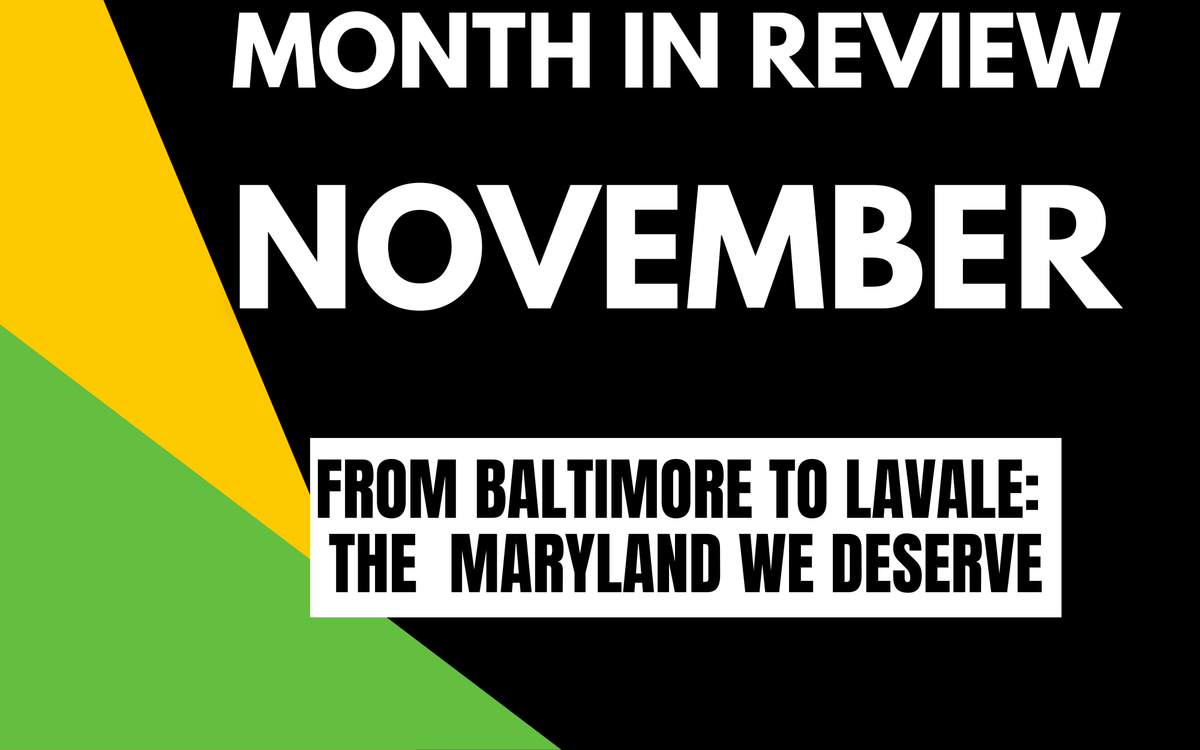
The end of November is that moment when the calendar makes something impossible to ignore: this year is almost over, and the next one is already taking shape. The holiday season, the year-end review, and New Year’s resolutions all arrive at once.
For political campaigns with long runways like ours, November before an election year is a reminder that the next general election is the one we’re working to be in. The rubber hits the road. It gets real. And we start explaining, again, that this is a marathon and a sprint.
Part 1 - November Highlights
Maggie's Farm Event
November 3rd 2025, one year from Election Day in 2026, we held a dinner for our friends and supporters at Maggie's Farm in Baltimore. Maggie's is a small business in our neighborhood that has been supportive of our vision for a multiparty Maryland, and has been a hub for community connection in Northeast Baltimore.
We talked about our campaign, learned a bit more about public finance, and had some great food.
Bonus: A handcrafted Andy cocktail and Owen mocktail.

Progress on Public Finance
November marked the first full month of our participation in Maryland's public financing program for the Governor's race. The way the program works is that we agree to increased transparency and lower per person limits ($250 per person as opposed to $6,000 per person). In exchange we are eligible for public matches on everything we earn if we hit certain thresholds.
To qualify for the matches we need 1,500 Maryland donors who collectively contribute $120,000 by the end of July of 2026. If we hit those goals then every eligible donation can be matched.
Here are some numbers As of December 3rd, 2025
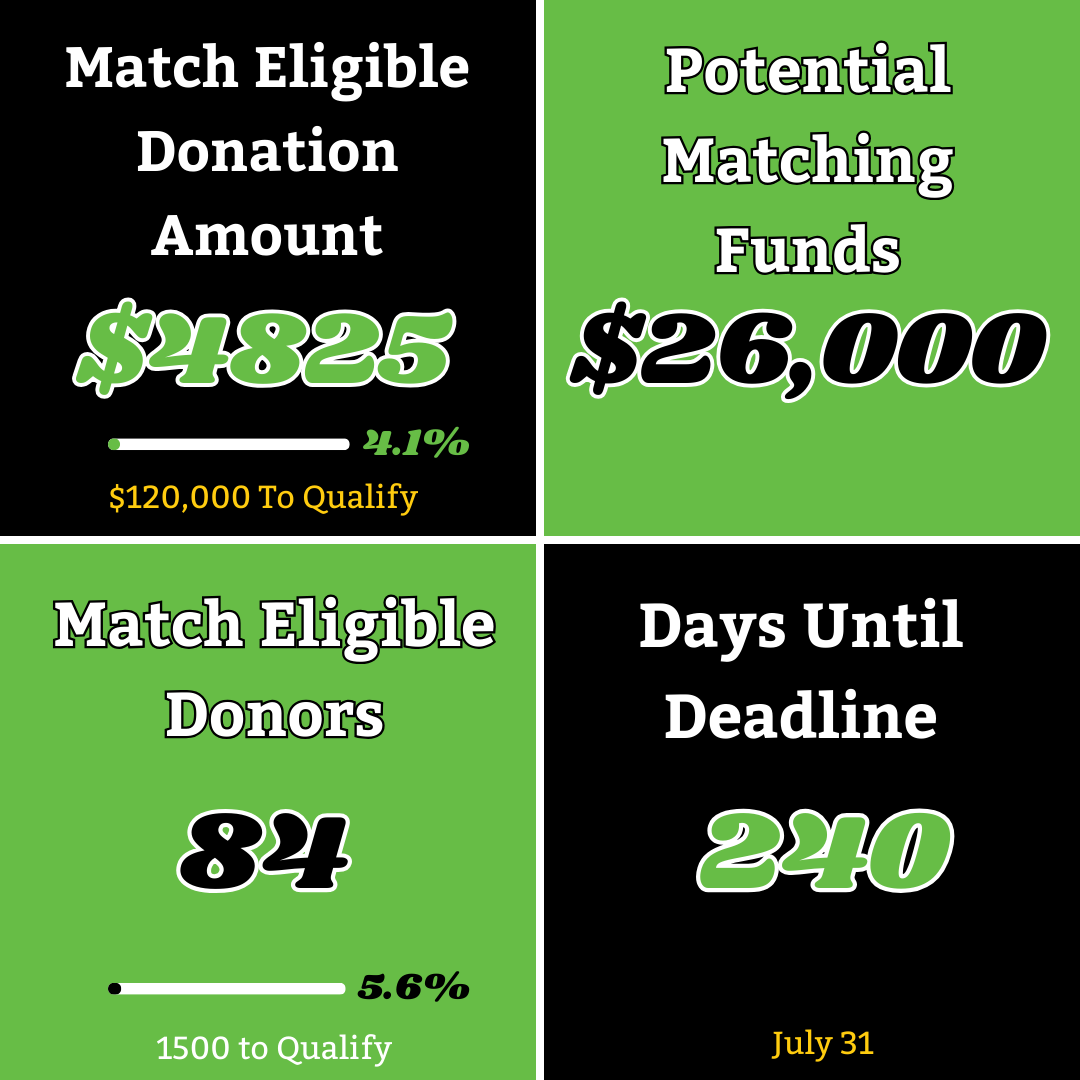
Takeaway
This is good progress, but there is a lot of work to be done!
Donate today and help us to qualify!
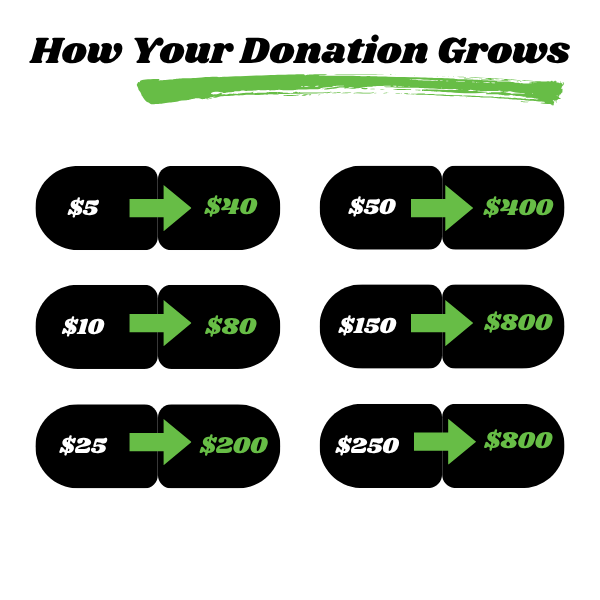
Podcast
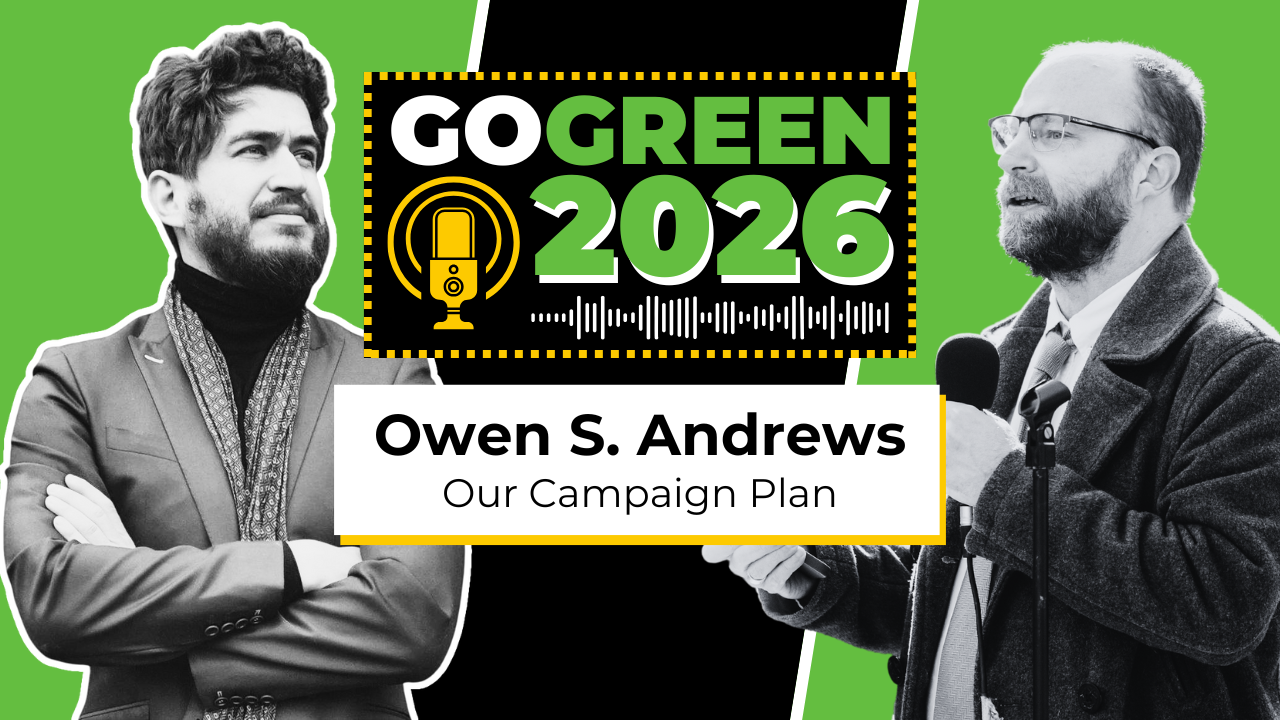
The day after the Maggie's Farm event Owen and I recorded an episode of our podcast that went deep in to the core goals of the campaign:
- Win the Green Party Primary in July 2026;
- Qualify for public financing by August 2026;
- Appear on the Maryland Public Television debate stage in fall 2026;
- Earn 100,000 votes in the November 2026 election, the best third-party governor performance in Maryland since the Civil War.
We also had some good conversation about how we work, and what we see as the long-term value of this work to build multiparty democracy in Maryland.
If you want to watch one thing to understand what we are doing and why, watch this!
Watch the episode here:
PS- If you like what you see and want to share it, but worry your friends won't watch the whole thing we have cut it in to segments available here.
Livestream
One of the most exciting things we did this month was launch our livestream. We already have the podcast. It has a straightforward purpose and format: a recorded conversation with one person interviewing another and deep discussion about a single focused topic.
The livestream serves a different need. The livestream is a live weekly political news show about Maryland politics from the Green perspective of our campaign. It has news we think you should be paying attention to, timely interviews, and policy deep dives.
In one of my favorite segments we answer questions that come in over chat, email, or in conversation with people. If you have a question you want us to answer you can submit it here!
Guests this month
Taylor Frazier McCollum
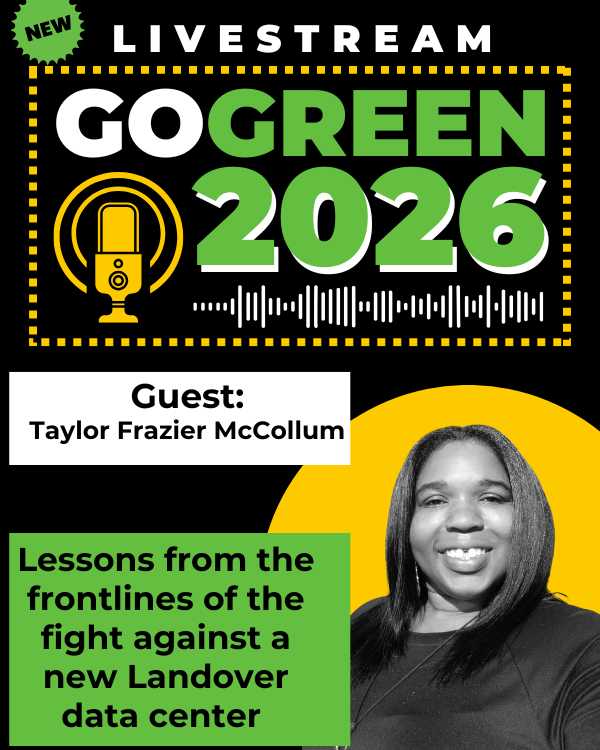
Taylor Frazier McCollum, a proud native of Washington, D.C., was raised in Landover, Maryland, where her journey as an activist began at a young age.
She became the president of the District Heights Youth Empowerment Program at just 15 years old,
During her college years, Taylor's political activism expanded as she took to the streets of Florida to canvass for Barack Obama.
Following her graduation, her dedication to progressive causes led her to join the Green Party, where she advocated for environmental justice and social equity.
Taylor launched a petition to fight against the construction of a data center in her beloved hometown of Landover, Maryland. That petition now has over 21,000 signatures and you can sign it right now!
Watch Taylor's interview:
Hiruy Hadgu

Hiruy Hadgu is an Eritrean American immigrant, activist, and community organizer and activist with a long record of bold advocacy and service in Howard County, Maryland.
For nearly a decade, he has helped lead local efforts for equity and justice by pushing to hold real estate developers accountable, demanding they pay their fair share, and calling for an end to corporate welfare in zoning and land-use decisions.
He has been deeply involved in immigrant rights and Palestinian solidarity work, including helping establish Howard County for a Free Palestine and advancing a local ceasefire resolution.
Hiruy currently leads a ballot initiative to amend the county charter to implement an ethical investment policy. It would require Howard County to divest from exploitation and war and invest in life-sustaining business practices.
His community work is grounded in strong academic training: he holds a masters degrees in nuclear engineering/radiological sciences and business administration.
Watch Hiruy's interview:
Lawrence Grandpre

Lawrence Grandpre is the director of research at Leaders of a Beautiful Struggle. He uses his 15 years of research and policy advocacy experience to work with community organizations and researchers to produce research and drive social change toward community self-determination. He supports the organization’s legislative advocacy efforts by producing research focused on evaluating best practices for policies that empower community decision-making and control of resources on topics ranging from policy accountability to reparations for the War on Drugs.
He employs African-centered research techniques to produce research and consult on projects with partner organizations, challenging traditional methodologies by centering community expertise on topics such as the impacts of media depictions of gun violence and the effects of drug criminalization.
He also applies analysis rooted in African-centered concepts of health to produce reports and op-eds that challenge public health orthodoxy and champion liberatory methodologies of service provision, addressing issues like grassroots violence prevention and harm reduction/substance use disorder.
He has produced over 70 podcasts on a variety of local, national, and international topics and uses his experience to support community organizations engaged in social justice organizing.
Watch Lawrence's interview:
Part 2 - The Places We Went
Baltimore Green Party Happy Hour
The Baltimore City Green Party invited us to join them at their November Happy Hour and we had a great time. We talked about strategy, how we can support the growth of the local Green Party chapter, and some of the ideas we had about building a multiparty Maryland.
It was a great time, and if you want us to come to your Green gathering please send an email to andy@gogreen2026.com.
Forward Party Open Primaries Working Session
On November 18th I was invited to a Maryland Forward Party working session to lay out a short term and long-term strategy to address Maryland's closed primary system. It included state delegates, small parties, independent voters, electoral reform organizers, and voting rights advocates. We came to consensus about some short term legislative work for the 2026 session and started a broader discussion about what democracy should look like.
Look for some bills in the 2026 Maryland General Assembly session about this!
BRJA 13th of the Month Event
Baltimore Racial Justice Action (BRJA) hosts a monthly panel and discussion series about racial justice. I joined Lawrence Grandpre of LBS and Dottye Burt Markowitz and Julia Scott of BRJA to look back at the 2025 election and forward to the 2026 legislative session and the 2026 election.
Much of the rich conversation focused on ways that the push for multiparty democracy and our campaign can provide leverage to Black grassroots advocacy organizations like LBS.
You can watch the video here.
Owen's Visit to LaVale
Owen took a trip out to Western Maryland. He had a listening session with some Allegany County Green activists. They talked about water bills, fracking, the need for transit options, and more.
Owen did a segment of our December 3rd livestream about the corporate greed that is driving water prices up and what the community is doing to fight back. You can watch the story here.
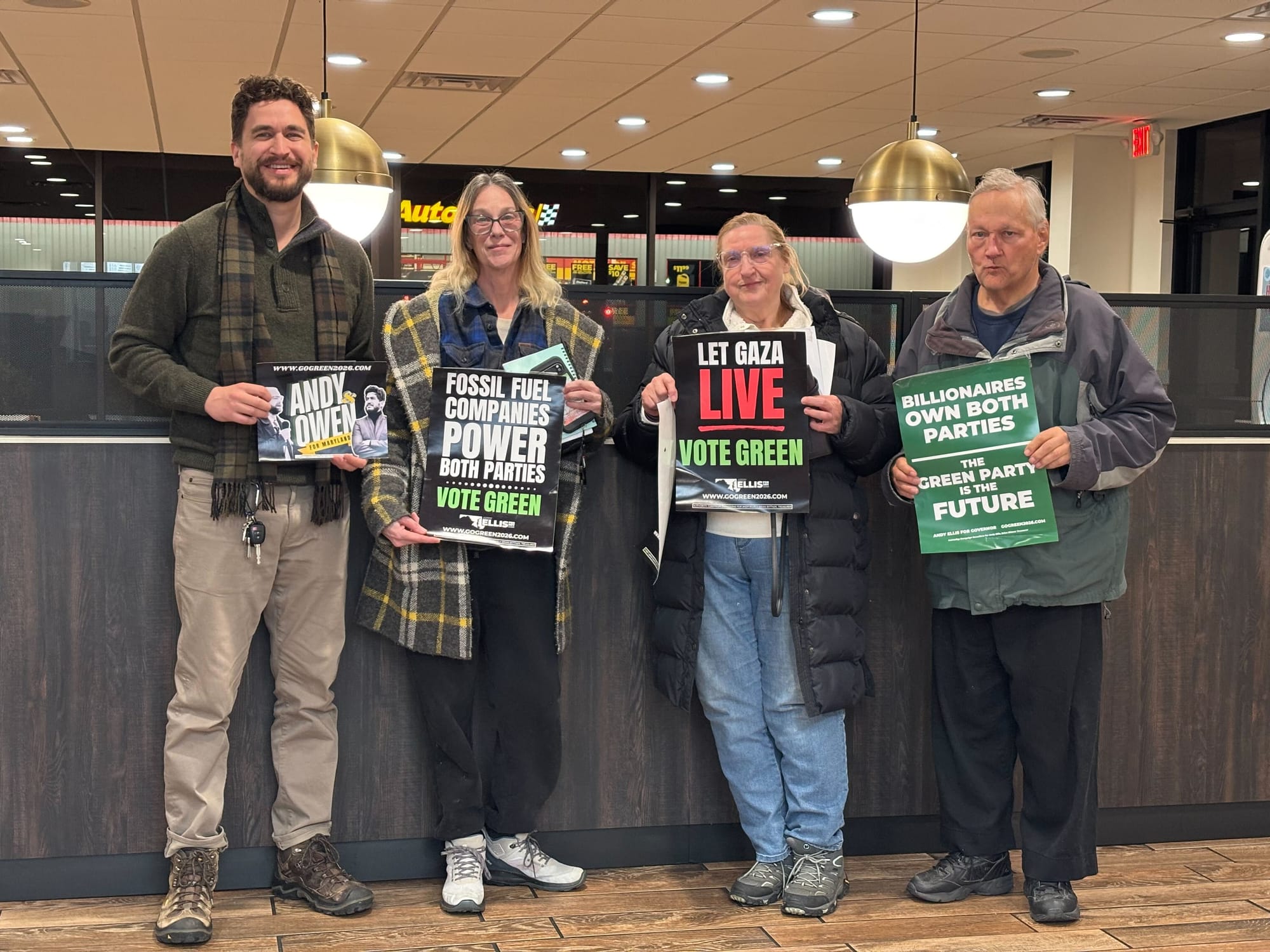
Part 3 - The Shows We Were On and the Publications We Were In
Part 4 - December, Downtime and Getting Ready For 2026
This December we are going to take some much needed downtime toward the end of the year. I can't wait!
We are also going to work hard getting ready for January and for 2026. Our next major campaign milestone is January 7th, 2026, 300 days out from the general election. Then the 90-day Maryland General Assembly session starts January 14th, and one week later the first campaign finance reports of the year come out.
All of this will keep us very busy in January, and the work we are doing now is essential to make sure we are ready. January will provide great opportunity for expanding the reach of our campaign and explaining the core message we offer Marylanders.
The two-party system is a trap.
Billionaires own both parties.
Andy and Owen are working for the Maryland we all deserve.
Vote Green.
There are three easy ways to get involved right now:
First, subscribe to our YouTube channel and watch our livestream! Then interact in the chat, leave comments and share with friends!
Second, sign the petition to Maryland Public Television to get them to open up the debates!
Third, donate. If you are in Maryland your donation can help us qualify for public financing. If you are in a different state you can still donate and help us build the campaign.
Thank you to everyone who has supported us in this very busy month and we are excited to share with you what is next for us!